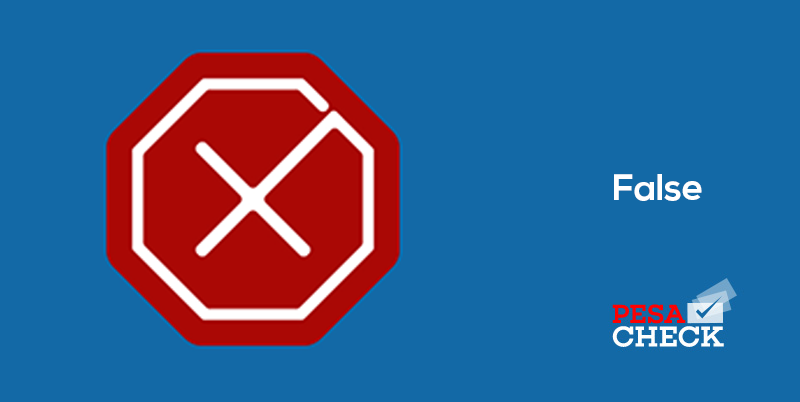
Sign in
Sign in
Citizens need accurate information to make sound decisions. PesaCheck is Africa’s largest indigenous fact-checking organisation, debunking misleading claims and deciphering the often confusing numbers quoted by public figures in 16 African countries.
—
Listen
Share
A website offering scholarships in the name of the University of Toronto ahead of the 2022/2023 intake is a HOAX.
The message accompanying the link to the website states that the scholarship is a yearly programme targeting undergraduates, Master’s, and PhD students who want to study in Canada.
The message also lists the requirements for the scholarship, which include that the applicant must be an undergraduate, Master’s or PhD student, be between the ages of 14 to 50 and be able to read or write.
Among the benefits that successful applicants will get include full tuition fee, medical allowance, instant visa approval, permission to work and study as well as hostel accommodation.
“Scholarships is Open Nationwides to students Only,” reads the message.
Clicking on the link opens a webpage containing the branding of the University of Toronto and instructs applicants to fill out a provided form.
“Study in University of Toronto Canada With Course of Your Choice At No Cost through-out The year program. The University of Toronto Scholarship Program Enables International Students to Study in Canada Comfortably and Free,” reads the message.
The questions on the application form seek personal information such as name, country of residence, and desired course of study.
Clicking on the “Apply Now” button opens up another page congratulating the respondent and informing them that their application for the scholarship has been received.
“To proceed to the next step. Answer the following three questions to acquire your immediately (sic)!” reads the message.
The multiple-choice questionnaire seeks information about the applicant’s employment and marital status, as well as their age.
After answering the questions, a new page appears containing another set of instructions for the applicants.
The first instruction is for the user to click on the provided “Invite Friends/Group” button to share the information about the scholarships with 15 friends or five groups on WhatsApp.
This sequence mirrors many phishing scams that are modelled as promotional giveaways aimed at mining people’s personal information.
Scammers also use tactics similar to these to carry out click fraud, a common scheme that lures users to bogus websites with the promise of a reward.
After sending the invitation, the next step is to click the “delivery” button.
“If you do not complete this step correctly, The VISA FORM page will not load,” reads a warning at the bottom of the page.
While the site promises a ‘scholarship Visa form’, this appears to be inaccurate. Information and accompanying forms to assist users in making an application under Canada’s Immigration Program is only available through the website of the Canadian immigration department — Immigration, Refugees and Citizenship Canada (IRCC).
There is also no information about the scholarship on the official University of Toronto website, its Facebook and Twitter pages.
While the domain name of the impostor website is ‘make-achange.online’, that of the legitimate University of Toronto is utoronto.ca.
A WHOIS lookup of the legitimate University of Toronto’s website shows that it was registered on 28 September 2000.
On the other hand, the WHOIS information of the impostor website reveals that it was registered on 22 January 2022 in Iceland. A legitimate domain is usually older than the impostor domain.
PesaCheck has examined the website offering scholarships ahead of the 2022/2023 intake in the name of the University of Toronto, and found it to be a HOAX.
This post is part of an ongoing series of PesaCheck fact-checks examining content marked as potential misinformation on Facebook and other social media platforms.
By partnering with Facebook and similar social media platforms, third-party fact-checking organisations like PesaCheck are helping to sort fact from fiction. We do this by giving the public deeper insight and context to posts they see in their social media feeds.
Have you spotted what you think is fake or false information on Facebook? Here’s how you can report. And, here’s more information on PesaCheck’s methodology for fact-checking questionable content.
This fact-check was written by PesaCheck senior fact-checker Simon Muli and edited by PesaCheck senior copy editor Cédrick Irakoze and acting chief copy editor Francis Mwaniki.
The article was approved for publication by PesaCheck’s managing editor Doreen Wainainah.
PesaCheck is East Africa’s first public finance fact-checking initiative. It was co-founded by Catherine Gicheru and Justin Arenstein, and is being incubated by the continent’s largest civic technology and data journalism accelerator: Code for Africa. It seeks to help the public separate fact from fiction in public pronouncements about the numbers that shape our world, with a special emphasis on pronouncements about public finances that shape government’s delivery of Sustainable Development Goals (SDG) public services, such as healthcare, rural development and access to water / sanitation. PesaCheck also tests the accuracy of media reportage. To find out more about the project, visit pesacheck.org.
PesaCheck is an initiative of Code for Africa, through its innovateAFRICA fund, with support from Deutsche Welle Akademie, in partnership with a coalition of local African media and other civic watchdog organisations.
—
—
Citizens need accurate information to make sound decisions. PesaCheck is Africa’s largest indigenous fact-checking organisation, debunking misleading claims and deciphering the often confusing numbers quoted by public figures in 16 African countries.
Are they lying? Kenya’s 1st fact-checking initiative verifies statements by public figures. A @Code4Kenya and @IBP_Kenya initiative, supported by @Code4Africa.
Help
Status
About
Careers
Press
Blog
Privacy
Rules
Terms
Text to speech

Recent Comments